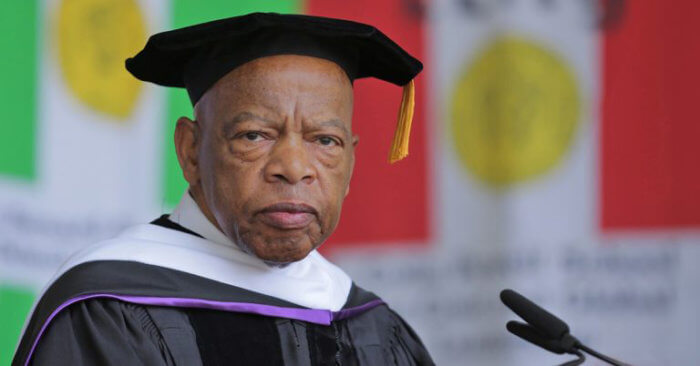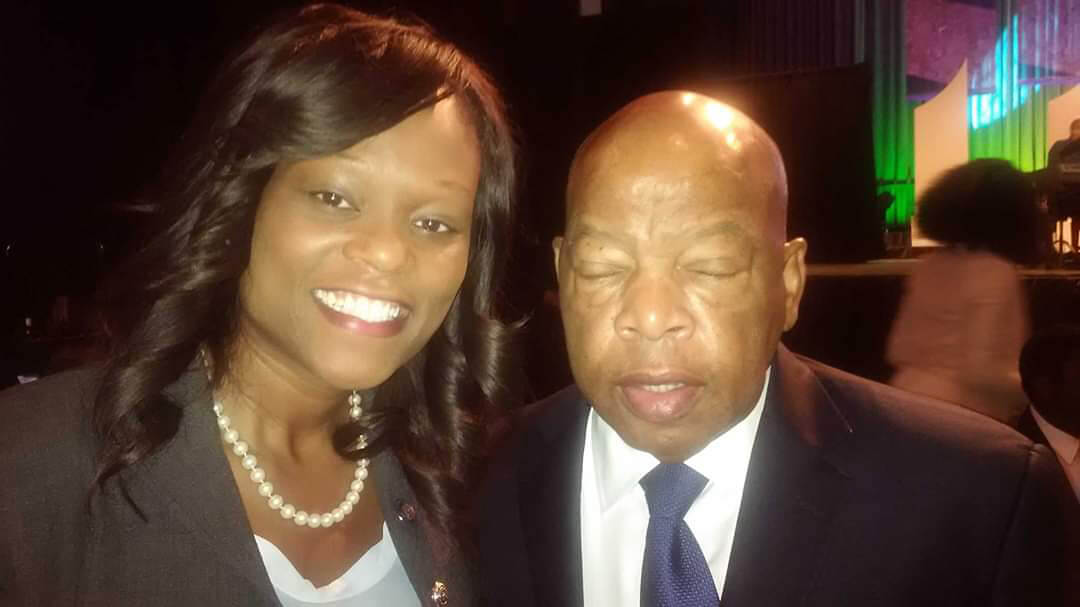Brooklyn Democratic Party chair Assemblywoman Rodneyse Bichotte over the weekend joined elected officials across the nation in mourning the death of civil rights icon and congressman John Lewis.
Lewis, who was diagnosed with stage 4 pancreatic cancer, died on Friday. He was 80.
“Today, with great sadness, I mourn the loss of Rep. John Lewis, an icon of the Civil Rights Movement and United States congressman,” said Bichotte on Saturday.
Bichotte, who represents the 42nd Assembly District in Brooklyn, noted that Lewis participated in lunch counter sit-ins, challenged segregation as a Freedom Fighter and was a keynote speaker at the 1963 March on Washington.
She said Lewis also organized protests to end Jim Crow laws in the Southern United States, and led over 600 marchers across the Edmund Pettus Bridge in Selma, Ala. during a campaign to register black voters, “and survived a brutal beating by police there.”
“He showed courage when met with discrimination and violence, as he championed equality, often at great personal cost,” Bichotte said.
In Congress, Lewis served Georgia’s 5th congressional district for more than 30 years, and was known as the “Conscience of Congress.”
In 2011, President Barack Obama awarded Lewis the Presidential Medal of Freedom, Bichotte noted.
“John Lewis is a true hero and an inspiration,” she said. “He succumbed to a battle with pancreatic cancer, but pursued justice even during his illness.
“In his last weeks, he summoned the strength to visit the protests, and show his support for the continued fight for racial justice,” the assemblywoman added. “Lewis spent his life pursuing a better life for future generations.
“Let us remember John Lewis and use his legacy as motivation in our continued fight for justice and equality for all,” she continued.

Chancellor of the City University of New York (CUNY), Félix Matos Rodríguez also said on Saturday that Lewis was “a true giant of the Civil Rights Movement, an American hero who made the long journey toward a more just and equitable society his life’s mission.”
Rodríguez noted that Lewis was the last surviving speaker from the March on Washington in 1963 in the shadow of the Lincoln Memorial, one of the original Freedom Riders; “and, more than a half-century later, he was still imploring us to speak out.
“Most recently, in the aftermath of the police killing of George Floyd in Minneapolis, he called on demonstrators around the country to muster the same commitment and zeal that typified his lifelong fight for social justice and basic human rights,” said Rodríguez in a statement.
He said Lewis “blessed CUNY with those same sentiments when he served as keynote speaker for the 2019 commencement at City College, urging us to stand up and to speak up, to go out and to get into ‘good trouble’ and to ‘turn our world and our country upside down in order to set it right side up.’”
Rodríguez said that CUNY bestowed Lewis with three honorary doctorate degrees over the last two decades — John Jay (2000), Queens College (2009) and City College (2019) — “all celebrating his pioneering work and ideas.”
“He told us to be unceasingly brave, bold and courageous, and reminded us that it was our moral obligation to do so,” he said. “Those words resonate today more than ever, and serve as a clarion call for all of us to continue the hard work that he left behind and to be relentless in battling racial intolerance and bigotry.
“Congressman Lewis was a mentor to us all, the country’s moral compass, and it’s up to all of us — and particularly those in the CUNY community whose mission is so tightly intertwined with the values of equity and inclusion — to make his struggle our struggle, and to carry on his fight for freedom and equality, because that’s what he would have wanted from us,” Rodríguez said.
“As we pray for his loved ones and share our deep condolences, we also pray that we are able to live up to the powerful and helpful example of Congressman John Lewis, and that we are able to advance his incomparable legacy,” he added.

























